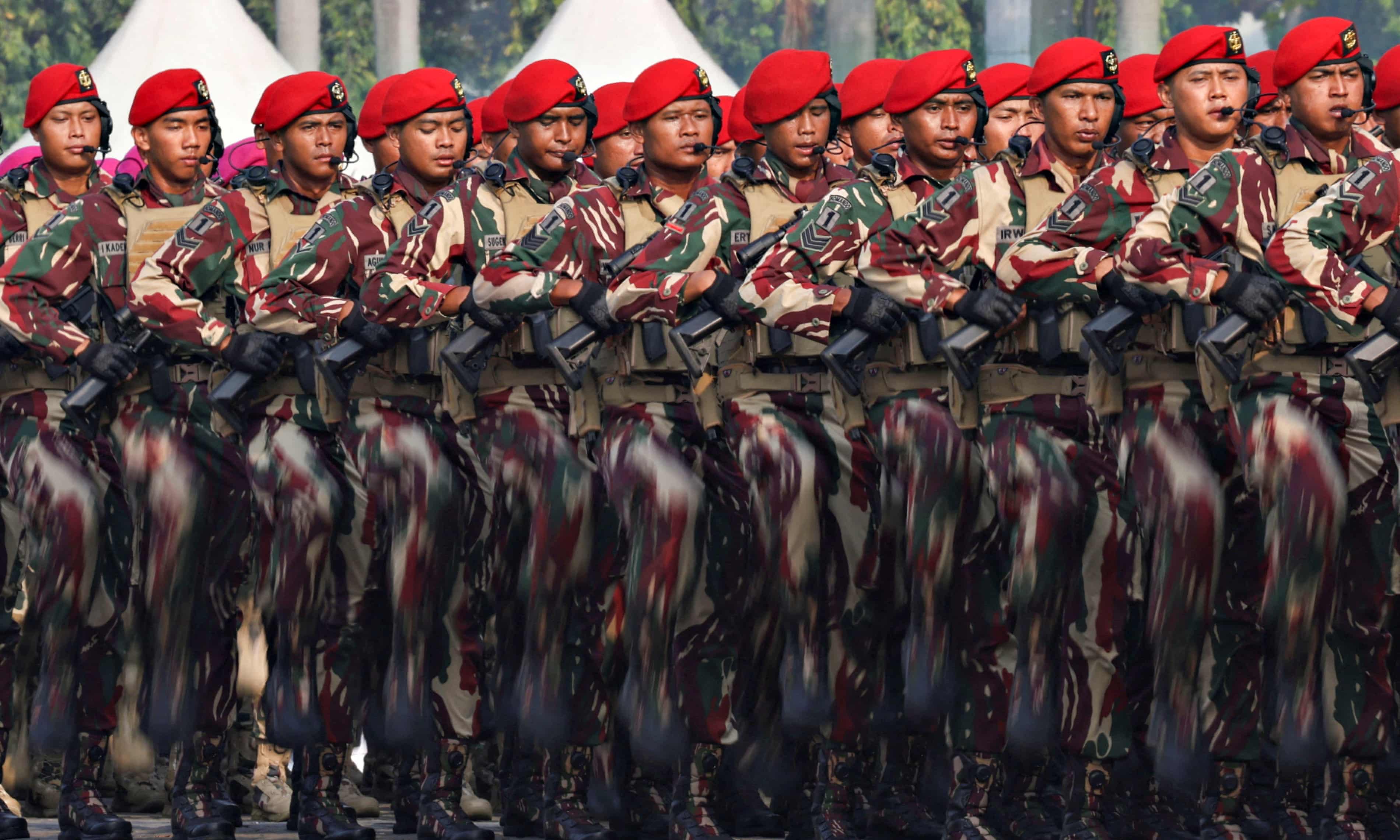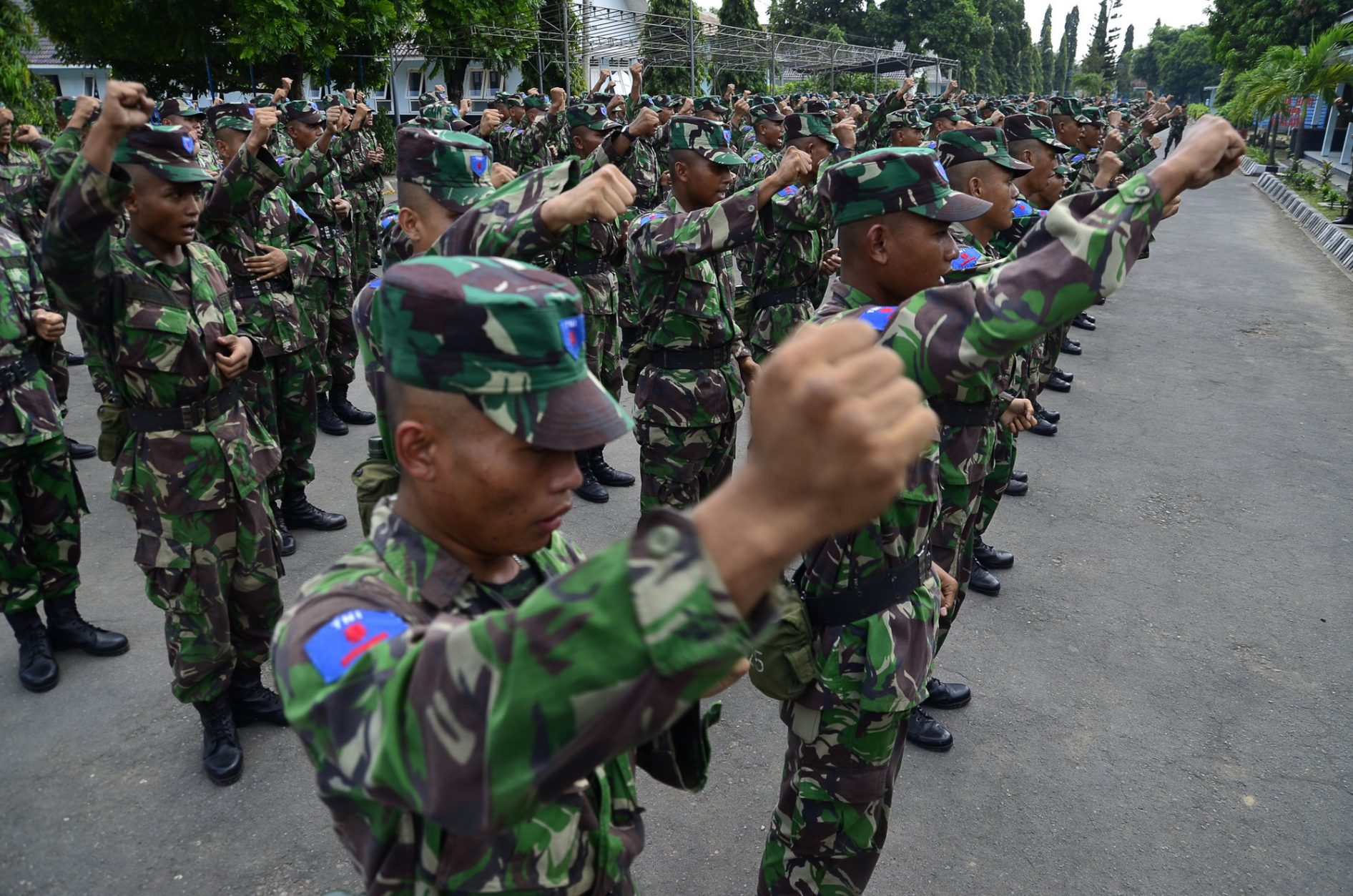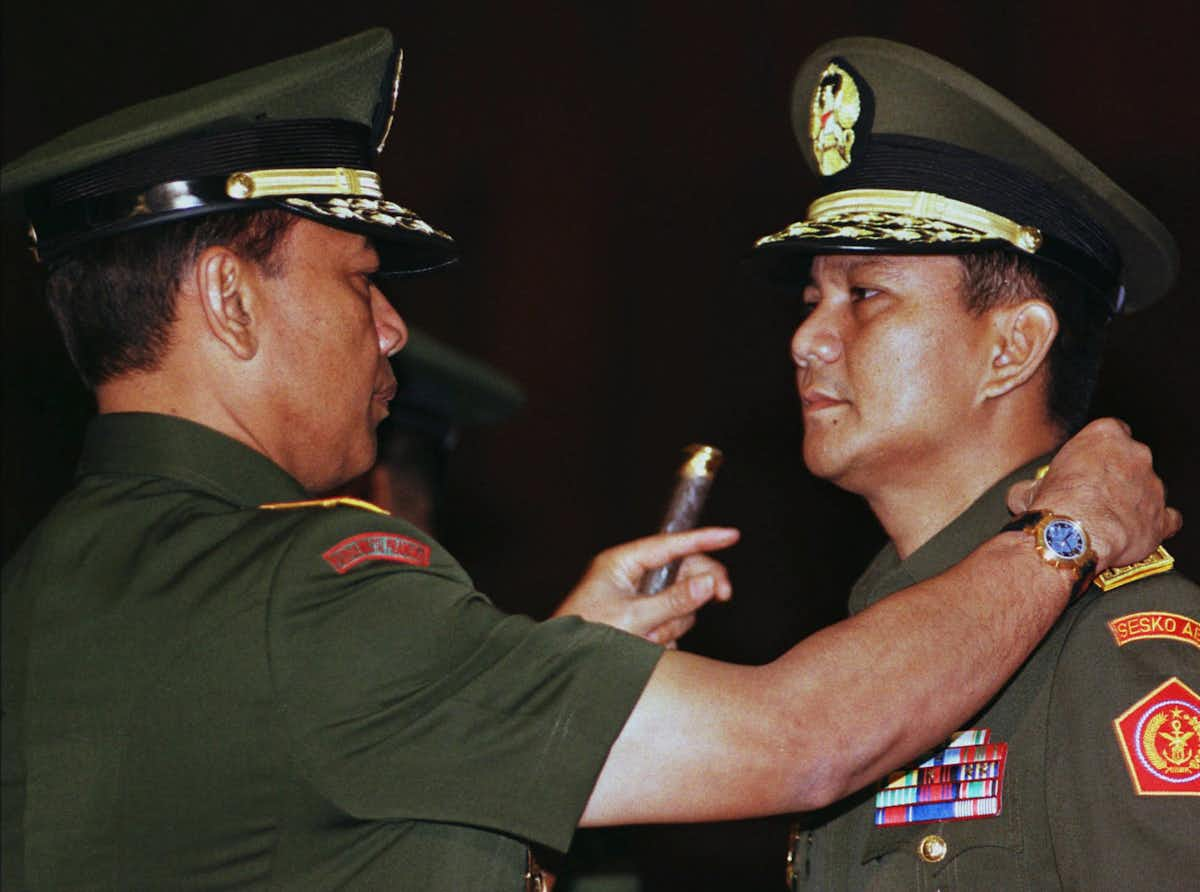Unrest Erupts in Indonesia Over Military’s Growing Role in Government—What’s Happening?

The legislation mirrors Egypt’s Sisi model.
Indonesia is facing mounting challenges to democracy, press freedom, and human rights as President Prabowo Subianto—former defense minister and a general under dictator Suharto—expands the military’s role in government through a newly approved law.
The legislation has ignited mass protests, particularly among students and journalists, who fear further erosion of civil liberties in a country where independent media already faces mounting threats.
Since taking office, Subianto—infamous for his role in kidnappings, torture, and massacres—has sparked fears of an impending crackdown, with critics warning of a looming “long winter” for Indonesia. Known for his brutal past and labeled a “fascist dictator,” he has leveraged military backing and deep-state influence to solidify his rule.
A Controversial Military Law
Indonesia’s parliament has passed sweeping amendments to military law, allowing active-duty officers to hold civilian positions without resigning from service—a move echoing Egypt’s military-backed governance model under the regime of Abdel Fattah el-Sisi.
With all eight parliamentary parties backing the bill, the legislature—firmly controlled by pro-Subianto factions—paved the way for military officers to assume key roles in civilian institutions, including the Attorney General’s Office, the Supreme Court, and the Ministry of Political and Security Affairs.
The move has sparked fears of a military resurgence in civilian life, reminiscent of Suharto’s authoritarian rule. Civil society groups warn that the reforms could drag the world’s third-largest democracy back into the oppressive “New Order” era, when the military dominated all aspects of governance.
In response, waves of protests have swept across Indonesia, with demonstrators hurling stones and Molotov cocktails while brandishing signs reading “Reject the Military Law” and “Capitalism Is Not for Gen Z.” Students and activists, fearing the dismantling of democracy, have been at the forefront of the resistance.
The government has attempted to downplay concerns, insisting that the policy aligns with democratic principles and human rights. However, civil society organizations remain deeply skeptical, warning that the law could open the door to widespread human rights abuses and further democratic backsliding.
Authorities have defended the move, arguing that in a rapidly shifting geopolitical landscape, Indonesia’s military must be prepared for both conventional and unconventional threats. Yet, critics argue that the real battle isn’t on the battlefield—it’s against the erosion of civilian rule.
As protests intensify, student groups and activists have staged sit-ins outside parliament in Jakarta, demanding an immediate withdrawal of military personnel from civilian roles. The question now remains: Will Indonesia resist the tide of militarization, or is it on the brink of a return to authoritarian rule?

Military Gains Power
Public concerns over Indonesia’s newly passed military law stem from fears of deepening militarization within the government. The legislation expands the number of ministries where active-duty military personnel can hold positions, raising the limit from 10 to 14.
A newly introduced clause further grants the president the authority to appoint military officers to additional ministries “as needed,” effectively giving the executive branch sweeping powers to place the armed forces in civilian roles.
For the first time, the law also allows “active-duty soldiers” to assume civilian positions in government agencies, including 14 key ministries and strategic state institutions. Critics warn that this will create conflicts of interest, as military personnel will now be embedded in the civilian administration while remaining part of the armed forces.
Previously, active-duty officers were restricted to roles in defense, security, or intelligence-related ministries under a 2004 law that curbed military influence over civilian affairs. However, with the president’s expected approval, the revised law will significantly expand the army’s role beyond national defense.
Once enacted, the legislation will permit military officers to hold civilian posts in additional institutions such as the Attorney General’s Office, the Supreme Court, and the Ministry of Political and Security Affairs—all without the need to retire or resign from the military.
In another controversial change, the law raises the retirement age for senior officers from 58 to 60, and for generals, up to 62—further extending the military’s grip on the country’s political landscape.

‘Dual Function’
Indonesia’s democratic activists and student groups fear the newly expanded military role in civilian governance marks a return to the notorious “dual function” doctrine of the Suharto era. Under the former dictator, the armed forces held reserved seats in parliament, and officers occupied thousands of civilian posts, from provincial governors to cabinet ministers.
The dual-function system effectively turned the military into Suharto’s political instrument, enabling him to crush opposition and tighten his grip on power.
When asked in October 2024 about the military’s growing influence in civilian affairs, the armed forces chief dismissed concerns, claiming that the army was not assuming a “dual function” but rather “multiple functions.”
However, Indonesian Human Rights Monitor Imparsial warned in a statement on March 21, 2025, that the new law contradicts the post-Suharto reforms that had aimed to depoliticize the military and confine it to the barracks. The group said this move risks bringing back authoritarian rule.
Criticism has also centered on the secretive manner in which the law was drafted and passed. Pro-democracy activists revealed that lawmakers and government officials held closed-door discussions on March 15, 2025, at a luxury hotel in South Jakarta to finalize the amendments.
The bill, submitted by President Prabowo Subianto, was pushed through parliament in under a month—an unusually swift process that raised suspicions about military-backed political maneuvering.
Former President Joko Widodo had warned as recently as 2017 that the Indonesian Armed Forces must stay out of politics and remain loyal only to the state. Yet, under Prabowo’s leadership, the military’s reach into civilian governance has only deepened.

Press Freedom Under Threat
Alongside the military’s growing presence in civilian roles, Indonesia has witnessed a surge in repressive laws under President Prabowo Subianto, echoing the authoritarian rule of Suharto.
During Suharto’s reign, draconian laws strictly controlled the press. Now, a controversial new criminal code—set to take effect in 2026—will reinstate a ban on criticizing the government, a restriction previously struck down by the Constitutional Court.
A proposed broadcasting law would further prohibit investigative journalism that exposes corruption and abuses of power.
Journalists in Indonesia already face threats, imprisonment, and even assassination. The military-backed legislation could exacerbate these dangers.
Tempo magazine, known for its critical reporting on Prabowo, has received chilling threats. In March 2025, its Jakarta office was sent a package containing a pig’s head with severed ears. In another incident, a box containing six decapitated rats was discovered—clear attempts to intimidate journalists and silence dissent.
Rights organizations and press associations have condemned these threats, calling for thorough investigations and stronger protections for press freedom.
Civil society has also been severely restricted. A 2017 law allows the government to dissolve NGOs without judicial oversight, leading to the banning of three organizations.
Activists fear government-backed online trolls and intelligence agencies could target and intimidate them. Some warn that Prabowo might exploit his ties with certain civil society groups to undermine or delegitimize critical organizations.
Since taking office in October 2024, Prabowo has shown little enthusiasm for democracy, dismissing it as “too exhausting, too chaotic, and too costly.”
A key pillar of his administration has been the revival of the “dual function” doctrine, which allows active-duty military personnel to hold civilian posts, effectively granting them control over the government. This doctrine was abolished after Suharto’s fall in 1998 but was reinstated through amendments to the civil service law, passed in October 2024 and approved by parliament in March 2025.
In a statement, Muhamad Isnur, chairman of the Indonesian Legal Aid Foundation, an NGO that provides free legal assistance to marginalized and underprivileged communities, compared Indonesia’s political parties to “buffaloes led by the nose, following the will of those in power.”
The bill, Mr. Muhamad said, merely serves “the interests of military elites and civilian politicians who are either unable or unwilling to adhere to democratic rules of the game.”

Black History
Prabowo Subianto, the driving force behind Indonesia’s recent military-backed legislation, is a former general and the ex-son-in-law of the late dictator Suharto, who ruled from 1967 to 1998. According to The Guardian, Prabowo has an authoritarian past much like Suharto’s.
He stands accused of severe human rights violations, having played a shadowy role during Suharto’s regime. Expelled from the military for abuses dating back to the 1980s, Prabowo was implicated in the torture and disappearance of prominent dissidents. Human rights advocates warn that his rise to power signals the beginning of a new dark chapter in Indonesia’s history.
As a longtime commander of the elite Kopassus special forces, he oversaw the abduction and torture of at least 22 political activists in 1998—13 of whom remain missing. He has also been accused of human rights violations in Papua and East Timor, including a 1983 massacre in Kraras, where hundreds—mostly men—were killed.
His military career came to an abrupt end in 1998 when he ordered his troops to surround the presidential palace during the transitional government of B. J. Habibie. A military honor council found him guilty of seven charges, leading to his formal discharge on July 14, 1998.
Following his expulsion, Prabowo went into self-imposed exile in Jordan before relocating to Europe. He returned to Indonesia in 2001 and followed the path of his younger brother, businessman Hashim Djojohadikusumo—one of the country’s wealthiest figures. Prabowo built a business empire spanning energy, palm oil, coal, gas, mining, agriculture, and fisheries.
Due to his tainted record, the U.S. imposed a travel ban on him and several Kopassus leaders over human rights abuses in East Timor. The ban remained in place until 2022, when it was lifted to allow him to visit as Indonesia’s defense minister.
Prabowo re-entered politics in 2004 by joining Golkar, Suharto’s former party, and later ran for president twice before securing victory in October 2024.
Sources
- Indonesia passes controversial law allowing greater military role in government
- Indonesian Parliament Passes Law Expanding Military’s Role in Government
- Indonesia’s new president, Prabowo Subianto, finds democracy ‘very tiring’. Are darker days ahead for the country?
- In Indonesia, a Parliamentary Action Evokes an Authoritarian Past
- Indonesia parliament passes contentious amendments to military law
- Why Indonesia’s new military law is alarming pro-democracy activists and rights groups












